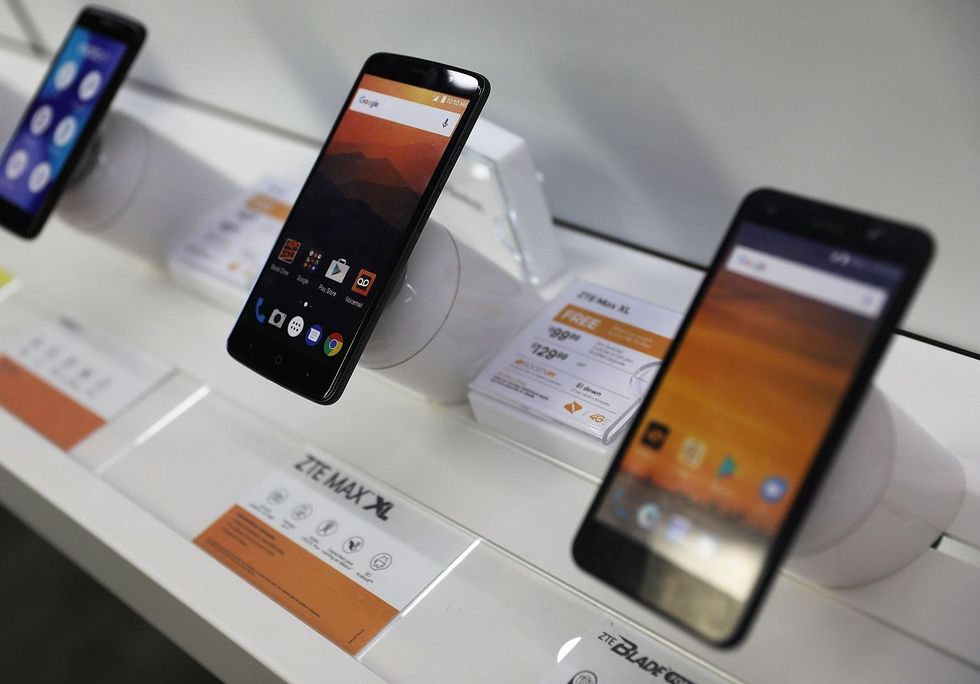
The Supreme Court has ruled that the government needs a warrant before they can access data from cellphone towers. (Joe Raedle/Getty Images)

The Supreme Court ruled Friday that authorities need to obtain a warrant before they can access data from cellphone towers that could track the movements of suspects.
In 2011, Timothy Carpenter was convicted for robbing several RadioShack and a T-Mobile stores. In order to convict Carpenter, FBI agents used cell tower data to place Carpenter at each store when the crimes were committed.
His lawyers appealed this conviction, arguing that the FBI should have had to obtained a warrant before accessing these records, and the case should be thrown out because Carpenter's Fourth Amendment rights had been violated.
Carpenter and his lawyers had lost their appeal in lower courts, because of a decades-old Supreme Court ruling that said phone customers did not have an expectation of privacy with call log information.
The Trump administration had urged the Supreme Court to rule against Carpenter, arguing in a legal brief that "[u]sers cannot reasonably expect that the providers will not reveal that business information to the government." Apple, Facebook, Google, and other major tech companies filed a friend-of-the-court brief asking the court to rule in favor of data privacy.
In the opinion for Carpenter v. United States, Chief Justice John Roberts noted that the data from cellphone towers can “give the Government near perfect surveillance and allow it to travel back in time to retrace a person’s whereabouts, subject only to the five-year retention policies of most wireless carriers.”
He also noted how “cell phones and the services they provide are 'such a pervasive and insistent part of daily life' that carrying one is indispensable to participation in modern society.” Furthermore, he wrote that users did not opt in to the feature, since “a cell phone logs a cell-site record by dint of its operation, without any affirmative act on the user’s part beyond powering up.”
Chief Justice John Roberts, Ruth Bader Ginsburg, Stephen Breyer, Sonia Sotomayor and Elena Kagan ruled in the majority, while Anthony Kennedy, Clarence Thomas, Samuel Alito, and Neil Gorsuch dissented.
While four justices voted against Carpenter, Gorsuch, Alito and Thomas did not seem to think that authorities should be able to access cell tower information without a warrant. Rather, they did not think that the ruling was sufficient to protect privacy in the future, or they contested the reasoning used to reach the decision.
In his dissent , Alito argued that this issue needed to be taken up by Congress, not the Supreme Court. Alito wrote:
Legislation is much preferable to the development of anentirely new body of Fourth Amendment caselaw for many
reasons, including the enormous complexity of the subject,
the need to respond to rapidly changing technology, and
the Fourth Amendment’s limited scope.
Thomas argued that the court was wrong to use Katz v United States (where the court ruled that a man using a public payphone had a reasonable expectation of privacy that the phone would not be wiretapped by federal agents) to either expand or limit the Fourth Amendment.
Kennedy, often viewed as the swing vote between liberal and conservative sections of the court, argued that law enforcement should have the right to obtain cell tower records without a warrant, because of "the serious consequences this will have for the proper administration of justice."